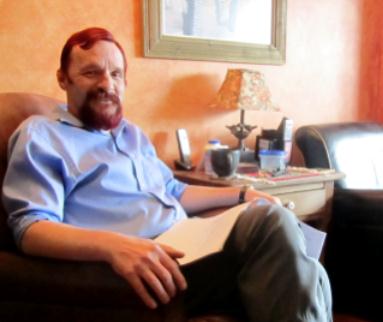A move to close Ottawa’s GLBTTQ Community Centre was once again blocked by poor turnout at its annual general meeting April 30, a frustrating reality chair Kevin Hatt says reflects the main issue the organization has always faced.
“The membership has spoken by not coming. We all can speak with our feet, and I guess they’ve spoken,” he says.
Only four members showed up at the City Hall meeting – three short of the quorum necessary to vote – making it legally impossible to lay the project to rest. The five board members, unable to find a way around this technicality, drew the small gathering to a close and noted an AGM might not be the best way to go about dissolving the corporation.
“We’ll see whether we need an AGM or if we can maybe just wind it down on our own,” Hatt says. “We’ll have to figure out what we can do legally.”
Interest from the community is something the Gay, Lesbian, Bisexual, Trans, Two-Spirit, and Queer Community Centre of Ottawa has struggled with since its inception in 2006. It faced similar sticky circumstances at its second AGM, in 2007, when attendance made up less than half the quorum needed to vote and forced it into a limbo that lasted two years. The project’s leadership attempted to revive it in 2009 but has since been unable to get it off the ground.
Today, 10 years after the release of the city-funded feasibility study that started it all, the board is ready to call it quits.
“I try to look at this as a good thing, because if there was really a bad need in this city or an issue or a problem, this room would be bursting with concern,” Hatt says.
Former chair and continuing board member Peter Zanette says that 10 years ago there wasn’t the same plethora of services being provided. A lot of community groups and health departments are now offering queer services in the smaller satellite offices around the city, and larger organizations like Pink Triangle Services have grown significantly over the last decade.
But according to PTS executive director Claudia Van den Heuvel, the rising number of organizations providing these services across the city only increases the need for a community centre.
“I think it makes it hard sometimes for all of us because we’re all over the board and fractured a little bit,” she says. “Ottawa needs a centre, that is without question. It’s just a matter of how we go about doing that.”
She says the GLBTTQ Community Centre might have had more success if it had focused on securing a physical location to rent out, instead of looking into the delivery of services.
“I know with certainty that we would want to be tenants, but we don’t necessarily want to support the idea of another organization doing what we already do,” she says.
One of the conclusions of the 2002 feasibility study was that a virtual community centre was needed to bring Ottawa’s services together online, and that’s something its members tried to focus on.
But since it has ended up in this same boat a few times now, legally frozen by lack of community interest, Van den Heuvel says it’s probably a good idea to shut the project down.
The board has been preparing to do just that. On March 31 it donated nearly all of its remaining funds – $5,000 – to the Ten Oaks Project Bowl-A-Thon.
Though Hatt says he was hoping to have the community’s blessing to dismantle the corporation, he remains optimistic that the lack of interest is a good sign.
“But I really hope if in the future the community feels the need arises, that the project will be taken up again,” he says.

 Why you can trust Xtra
Why you can trust Xtra


